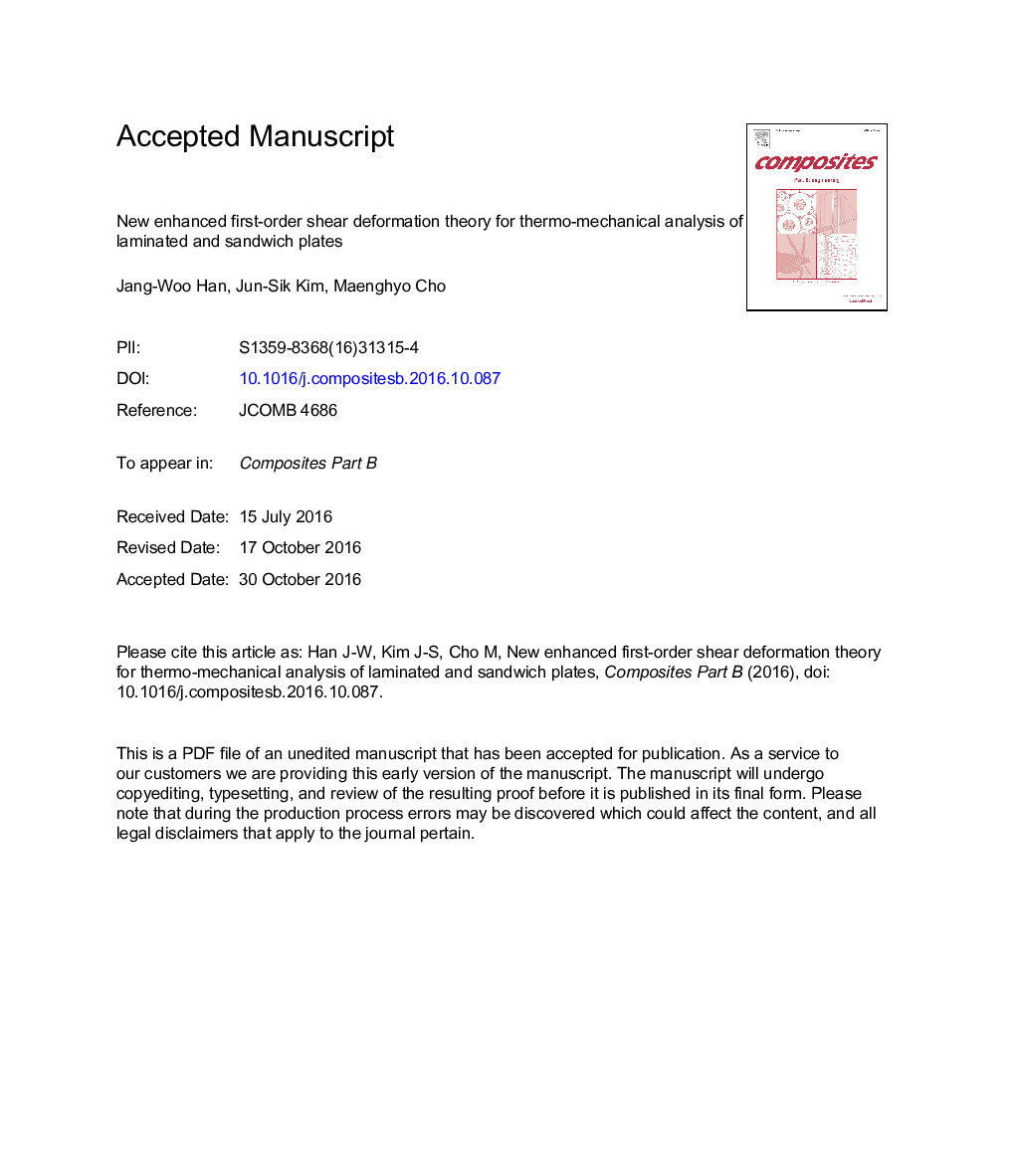| Article ID | Journal | Published Year | Pages | File Type |
|---|---|---|---|---|
| 5021495 | Composites Part B: Engineering | 2017 | 74 Pages |
Abstract
This paper proposes an efficient and accurate thermal stress analysis method based on the conventional first-order shear deformation theory (FSDT). The transverse shear strain energy is modified through the mixed variational theorem. The independent transverse shear stresses are obtained from a third-order zigzag model to improve the accuracy, whereas the FSDT displacements are employed to improve the numerical efficiency. The transverse displacement field includes higher-order terms without introducing additional unknown variables by superimposing a prescribed thermal field. This allows one to consider the thermal transverse normal strain effect under the plane stress condition. The resulting strain energy expressions are collectively referred to as the enhanced first-order shear deformation theory including the transverse normal effect based on the mixed variational theorem (EFSDTM_TN). The EFSDTM_TN offers the same computational advantages as the conventional FSDT while allowing for improved local variations of stresses and displacements via a post-processing procedure. In this procedure, in-plane correction factors are introduced and determined by applying equivalent stress resultants so that the improved stresses satisfy the plate equilibrium. Finally, the obtained displacements and stress distributions are compared with the data available in the literature.
Related Topics
Physical Sciences and Engineering
Engineering
Engineering (General)
Authors
Jang-Woo Han, Jun-Sik Kim, Maenghyo Cho,
